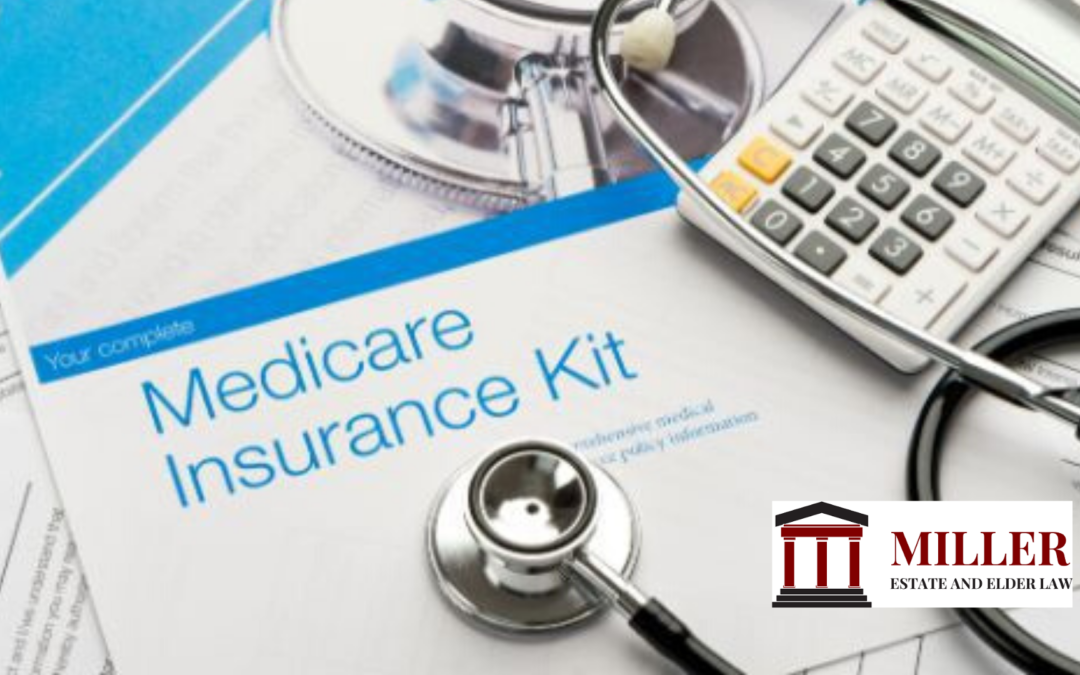
by Bill Miller | Jul 13, 2020 | Blog, Medicaid
It’s easy to be intimidated by a Medicaid application. You have to provide much information and satisfy many strict regulations. Knowing a little more about the process – especially in the form of tips from experienced people – can really help.
Know What Benefits Are Available
Before starting the whole application process, check out Medicaid’s programs. Do any of the programs meet your needs? Will the services offered meet your individual needs?
For example, Alabama Medicaid covers many services, including:
- Dental services, but only for an applicant who receives full Medicaid. Only certain age groups may be eligible.
- Doctor Appointments. Medicaid typically pays for 14 visits each year. Will you need more than 14 visits?
- Family planning services. Some of the services are only available to men or women over age 21.
- Transportation – Ambulance. Medicaid will only pay for transportation when it is medically necessary.
Of course, this list is not complete. Medicaid offers other services with restrictions and limitations, so confirm that you can get the help you need.
Make Sure You Qualify
Talk over your financial situation with your attorney. To qualify for Medicaid, you have to be careful not to exceed income and resource limits. With careful estate and financial planning, you may be able to increase your chances of Medicaid approval.
Get the Application Right the First Time
Probably one of the best ways to have your application denied is to submit incorrect or incomplete paperwork. You will submit quite a few supporting documents, as well as the application itself. In fact, Medicaid expects to review five years of financial data.
Talk to an Experienced Medicaid Attorney
This may be the best way to get your application approved. However, an Alabama Medicaid attorney can do more than get you through the application process. Medicaid planning should begin years before you actually apply for Medicaid. It’s in your best interests to consult with a lawyer as soon as possible.
Contact us at 256-472-1900 for a free consultation. The attorneys at Miller Estate and Elder Law know how to help you with Medicaid planning and with estate recovery concerns.
Also, receive a free download of Medicaid Planning in Alabama: What You Need to Know by clicking here.

by Bill Miller | Jul 6, 2020 | Blog, Nursing Home
For many of us, the time will come when we have no choice but to seek extra attention and care for our spouse. Is it time to consider moving your spouse to a nursing home? This can be a difficult decision as there are many things that you want to protect your spouse from, including abuse and general mistreatment. Even though you may not have a choice but to place him or her in a nursing home, that does not mean that it has to be a horrible experience for either you or your spouse.
First and foremost, you want to ensure that the home you have selected is Medicaid/Medicare approved as this will help you make the best choice financially. Here are a few other things you can add to your checklist to help you make the best decision for your spouse as well as your peace of mind.
1. Ask if residents can have their personal belongings, including furniture, in their rooms. You may also want to find out whether your spouse will have storage space, such as an appropriately sized closet and drawers in the room.
2. Verify amenities provided by the nursing home. Will your spouse have computer and internet access in his or her bedroom? Will there be a television? Will there be a window to provide natural light? Access to these types of comforts can help ease the transition into the nursing home.
3. Inquire about what type of activities the home offers and if the facility helps residents who may not be mobile. Find out if the nursing home has outdoor areas for your spouse to use. You may also want to ask if your spouse will be able to choose what time to get up, go to sleep, or bathe.
4. Look into the support provided for residents with advanced health care needs. For many of us who are struggling with this decision, our spouses may not be in very good health. For example, a common disease that impacts many Older Americans is dementia. If this is the case with your spouse, you may need to know if the nursing home has specific policies and procedures related to the care of residents with dementia. If the facility does, what types of non-medication based approaches do they employ when trying the first attempt to respond to behavioral symptoms for residents living with dementia? What percentage of residents have dementia and are currently being prescribed antipsychotic medication? This can help you to understand the type of residents that your spouse will be surrounded by as well as the home’s workload.
These are just a few tips to help guide you in making a difficult decision and help you to do what is best for your spouse. These kinds of major life changes often come with complicated legal issues. Miller Estate and Elder Law can provide you with guidance to help you make informed decisions on long-term care planning and nursing home issues. Get in touch with our office today to schedule a meeting.

by Bill Miller | Jun 22, 2020 | Blog, Medicaid, Medicaid Planning, Medicaid Qualification
Benefit programs like Medicaid often include strict requirements and rules. To qualify for Medicaid, for example, an applicant must show a financial need by staying below Medicaid’s income and resource limits. However, some people need Medicaid benefits but exceed the amounts Medicaid allows. In this article, we will look at those limits, and, more importantly, how to spend-down your assets and monthly income to meet them.
Medicaid Limits on Income and Resources
A nursing home resident typically can possess no more than $2,000 in resources as of the first day of the month.
However, Medicaid does not count all of your assets and income. Some resources might be considered as countable, including cash, real estate, and one automobile per household. The status of some assets may change in certain situations. For example, real estate held as a life estate or that is on the market may not be counted.
It’s to your benefit to consult with an experienced attorney before applying for Medicaid or attempting any sort of spend-down activities.
Planning a Spend-Down
After learning you may not qualify for Medicaid because of income and asset limits, you may want to plan a spend-down of your assets. But how exactly do you go about doing this? Here are some important considerations:
- Where are you living?
- Are you married or single?
- What is the source of your income?
- What type of assets do you have?
The answers to these questions may make a difference in how you spend proceed. Make sure your lawyer has all the information needed to advise you about spending down your assets.
Actions That Spend-Down Your Assets and Monthly Income
After carefully assessing your resources compared to Medicaid’s requirements, you may start taking some of the following steps:
- Pay your medical bills. Certain medical bills can be paid to reduce your countable cash assets. In addition to your own, you may be able to pay medical bills for your spouse and your children. You can pay past and current medical expenses, which may include transportation costs, therapists, personal care attendants, home health aides, rehabilitation programs, prescription drugs, and medical equipment ordered by a doctor.
- Pay off other debts. You may be eligible to use excess income to reduce mortgage, auto loan, and credit card balances.
- Sell certain assets. In some situations, countable assets may be sold to pay off medical bills and debts to reduce a recipient’s resources.
- Set up a Miller Trust. Excess monthly income can be diverted to a Miller Trust to stay below Medicaid’s monthly income and resource limits. Funds in the Miller Trust can be used for eligible expenses.
Keep in mind that transferring, selling, or spending assets may result in reductions or delays in benefits.
Spend-Down Your Assets and Monthly Income Wisely
The rules are complicated. Always speak with an experienced attorney before trying any kind of spend-down strategies.
The attorneys at Miller Estate and Elder Law help clients like you with Medicaid planning and applying for benefits. Contact Bill Miller at 256-251-2137 to schedule an appointment.

by Bill Miller | Jun 15, 2020 | Blog
It’s true. There’s no place like home, especially for people who have lived in a family home for years. Louisa, for example, created many happy memories in the house she had shared with her husband and three children. However, there came a time when Louisa’s health was declining. She needed someone to help with her activities of daily life, including taking her medication and tracking several health conditions. Her family looked for a residential long-term care facility, but then they learned about the Alabama Elderly and Disabled Waiver provided by Medicaid. This may be the answer Louisa needs.
Paying for Long-Term Care
Many people to turn Medicaid when they need help paying for nursing home or institutional care. For those who qualify, Medicaid provides important benefits to meet their healthcare needs. In fact, Medicaid programs are available for children, caretakers, pregnant women, elderly people, and people with disabilities.
Staying Home May Be an Option
Some people like Louisa need assistance but at a level that still allows them to remain at home. The Alabama Elderly and Disabled Waiver does just that for qualified seniors.
Two groups manage this home and community-based waiver program: the Alabama Medicaid Agency and the Alabama Department of Senior Services. The following services may be offered:
- Case Management. A case manager analyzes the benefit recipient needs, then works to line up services that meet those need.
- Homemaker Services. A trained aide may assist the elderly or disabled person with meals, grocery shopping, cleaning, and personal needs.
- Personal Care Services. In conjunction with a doctor’s plan of treatment, an aide may assist with bathing, dressing, walking, eating, taking medication, and more.
- Adult Day Health Services. Recipients participate in social and health care activities, like health education and health screening.
- Respite Care. A personal care attendant, home health aide, homemaker, LP, or RN providers short-term assistance.
- Companion Services. This type of assistance is non-medical. Paid Companions may supervise or assist with activities of daily living and housekeeping as needed.
- Home Delivered Meals. A registered dietician approves menus for food delivered to individuals age 21 or older.
These services not only make life better for an elderly or disabled person but typically cost less than institutional care.
Will the Alabama Elderly and Disabled Waiver Work for You?
Talk to an experience Alabama attorney to find out.
The attorneys at Miller Estate and Elder Law have years of experience working within the Medicaid system. They help clients like you with Medicaid applications as well as advanced Medicaid planning.
Schedule a consultation with one of the attorneys at Miller Estate and Elder Law. Our phone number is 256-472-1900. We are now located at 818 Leighton Avenue in Anniston, but we serve clients in communities like Hoover, Vestavia Hills, Irondale, and Calera.
Also, take a look at some of the free guides offered on our website.

by Bill Miller | Jun 2, 2020 | Blog, Nursing Home
Social distancing and restrictions on entering skilled nursing facilities continue to be in place across the nation. We know, as elder law attorneys, this can make it more challenging to be able to interact with your loved ones who may currently reside inside of them. We also know that this inability to interact personally may also cause you additional stress since you may not be able to physically “see” your aging loved one.
The first step to alleviate this concern and to also help your loved one, starts with making a plan. What should you plan for?
- Plan to communicate with your loved one and the care team.
- Plan to be involved, and stay involved.
- Plan to be available to answer any questions for your aging loved one.
- Plan to be available to advocate for your aging loved one.
We know you may have questions on how to best tackle this responsibility, especially in light of the ongoing issues from the pandemic.
1. Be in frequent communication. Communication is critical right now. Whether it is with your loved one or not, the nursing home needs to know that you are involved. Of course, you want to participate with your loved one who is in the facility but it is equally important to speak with his or her care team. The care team may involve doctors, nurses, and therapists, as well as other specialists. Make contact and ask to be provided with an update at least weekly, if not more frequently.
2. Participate in meaningful conversations. If you are able to communicate with your aging loved one, try to make your interactions as meaningful as possible. Social distancing and visitation restrictions can make this more challenging, but there are ways to stay connected. In addition to phone calls, consider video chats like FaceTime or Facebook Messenger so your loved one can see you and your family. Also, during this time you can share photos and scrapbooks as well.
3. Advocate from anywhere. Remember that your aging loved one may need you more than ever right now. The lack of being able to go into a facility in person should not prevent you from speaking with him or her. Discuss with your loved one, if possible, and the facility what are the best ways for you to be involved.
We know this blog may raise more questions than it answers. Do not hesitate to contact us at any time to help you answer them. We are here to help you and your loved ones as you face these challenges.

by Bill Miller | May 28, 2020 | Blog, Medicaid, Nursing Home
Tom knew his dad, Frank, was having a little trouble taking care of himself at home. He dreaded the idea of putting his father in a nursing home, even though he knew of several wonderful homes nearby. Frank wanted to remain independent at home for as long as possible. One day, however, Frank’s doctor told Tom that Frank should have supportive devices, special transportation, assistance with taking medication, and help with his daily activities. As Tom helped his dad deal with the changes in his life, he learned that Medicaid can help every step of the way. The first step was finding out that nursing care was needed.
Step two is finding out how Medicaid can help your loved one stay at home. Keep in mind that some Medicaid programs cover home health and institutional care.
Home-Based Long-Term Care
Medicaid is a federally-funded, state-run program that provides healthcare to qualified individuals. However, Medicaid is not just one program. Instead, various programs are offered to help different segments of our society. People like Frank need advanced care but may be eligible for Medicaid programs that meet their medical, nursing, and social needs without leaving home. Medicaid home health programs include:
- Home Health Care. Eligible people of any age, including elderly, may be qualified to receive Medicaid home care
- Home and Community-Based Waivers. Eligible Medicaid recipients must be at risk for moving to institutional care, yet willing to receive that care at home.
At some point, people may be ready for step three.
Transitioning to Institutional Care
Moving from home to nursing home can be difficult. Medicaid programs offer services and financial aid to make the move a little easier.
- Medicaid for the Elderly and Disabled (E&D). The services offered through E&D assist people who live at home and in nursing homes, hospital, and other residential facilities.
- Medicaid in the Nursing Home (Institutional Medicaid). This program provides coverage of institutional care for people who qualify.
Medicaid For the Various Phases of Life.
In addition to programs that help people move to an institutional setting, Medicaid also offers a program to help people move out of nursing homes. Gateway to Community Living offers services and support for qualified individuals who wish to move from an institution to a home setting.
Contact Bill Miller at 256-251-2137 to schedule an appointment. The attorneys at Miller Estate and Elder Law can help with applying for Medicaid. Even better, we can help you with Medicaid planning to increase your chance of getting Medicaid and keeping as much property as possible. Though our office is now located at 818 Leighton Avenue in Anniston, we serve clients in Gadsden, Hoover, Talladega, Vestavia Hills, and surrounding areas.





